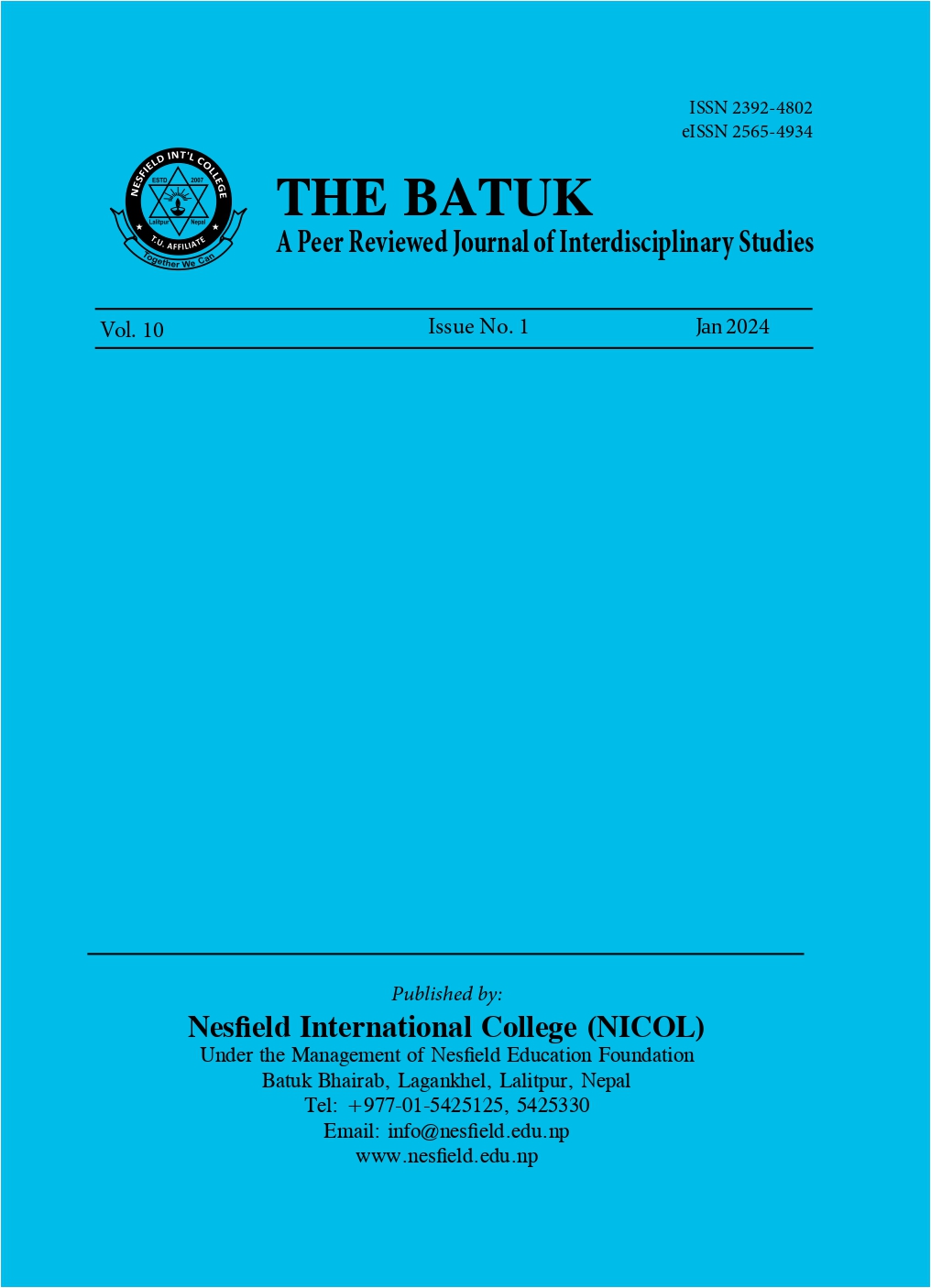Cultural Sustainability and Samosa Colonialism: A Decolonizing Thinking Practice
DOI:
https://doi.org/10.3126/batuk.v10i1.62301Keywords:
indigenous knowledge, colonial thought, cultural practices, decolonizationAbstract
The Tarai region of Nepal was well renowned for its epistemic diversity of Mithila art-based cultures. It included poetry, theatre, stories, proverbs, metaphors, jokes, songs, folklore, dance, and music, as well as dialogue, myths, local proverbs, photographs, and drawings. Cultural sustainability can be defined as the ability to uphold or enhance beliefs and perspectives in the face of outside influences, such as colonial practices. The Samosa trade has been found to have promoted colonial practice in some Terai places, bringing significant changes in the indigenous lifestyle and culture. It seems that this is because of the well-known culture-based cartoons from South India known as Motu Patlu. In this context, this study aims to explore the relevance of indigenous thinking, practice, and social responsibility in a contextualized local education system. For that, we conducted a qualitative study using purposive expert group discussions and follow-up tele-interviews to investigate epistemic plurality within the constructivist framework. The study showed that local agricultural productivity has decreased, which has hurt the ecosystem and biodiversity. Similarly, everyone developed a spending habit as a result of the market shopping tradition. Therefore, the revolution of evolution is the need of the moment to inculcate correct indigenous values and practices through the educational system.
Downloads
Downloads
Published
How to Cite
Issue
Section
License
Copyright (c) 2024 Nesfield International College

This work is licensed under a Creative Commons Attribution-NonCommercial 4.0 International License.
This license enables reusers to distribute, remix, adapt, and build upon the material in any medium or format for noncommercial purposes only, and only so long as attribution is given to the creator.




